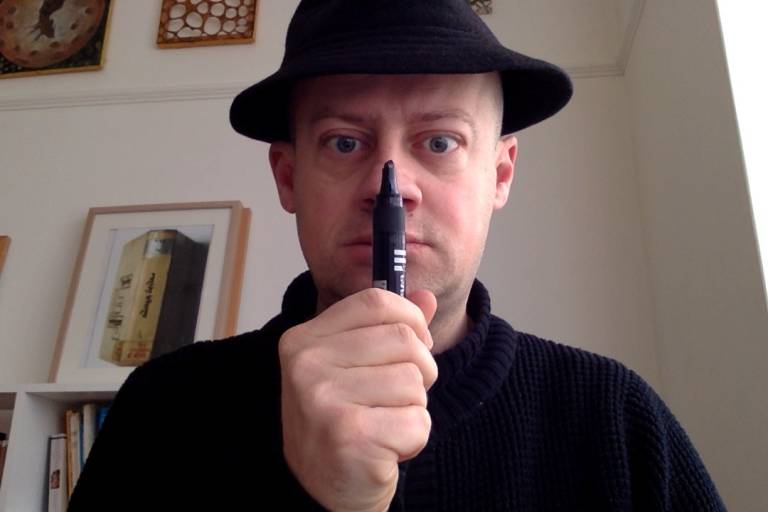Developing my teaching as a Postgraduate Teaching Assistant: Francesco Strocchi
Francesco Strocchi, a Postgraduate Teaching Assistant in UCL History, participated in the Arena One 'Teaching Associate Programme' and gained an Associate Fellowship of the Higher Education Academy.

25 September 2017
Which Arena pathway did you follow and where did you hear about it?
I joined the Arena One ‘Teaching Associate Programme’ (TAP). I heard about it via my department, which emailed me about the mandatory Arena One Gateway session for PGTAs: this email also contained information about the TAP.
What was your motivation?
I wanted to be more aware of “what I am really doing when I teach”, as I had been appointed Postgraduate Teaching Assistant (PGTA) for the first time. I felt I had a lack of knowledge about what teaching means, not only for teachers but in particular for students.
What was the most useful element?
Discussions about teaching and tutoring, the theories and linking these to practice, but also the feelings involved and the sharing of experience with other teachers.
I found extremely useful the fact that the other attendees were not from the same discipline as myself, but were doctoral students in other disciplines.
The disciplines might be different but the relationship between teaching/tutoring and learning is the same: putting the contents into a particular teaching mode is not enough; what counts is making them work in every class with diverse groups of students.
For instance, every topic needs to be made evident: Caesar’s death is not merely an abstract account but can be studied as a written source, a movie sequence, a coin, an epigraphy, a theatrical act. In other words, every topic is real, interacts with objects and connects with the collective imagination. The more the topic becomes tangible and the more connections the students are able to make to their own experience and knowledge, the more the teaching and learning become effective.
Constantly having the opportunity to confront my own concerns and experiences together with other PhD fellows has been essential to me to acquire awareness, discipline and a humble attitude towards teaching and tutoring.
How has it changed your teaching?
A lot! I feel less anxious and more open to advice.
I listen more to students (I often ask for their feedback and, for instance, at the beginning of the class we all revise and establish links to the previous class), and I feel happy and confident when I teach.
One of the TAP course tasks is to write case studies about your own teaching practice. Putting into words my first case study was difficult but very useful: it helped a lot to reflect on the timing of teaching and the students’ reaction and interaction. Moreover, reading other PhD fellows’ case studies increased my confidence in what I am doing.
I have become much more reflective, and every time I teach or tutor I now take notes (what I wanted to teach and what I really taught; which activity worked, which did not and why; how did the students interact with me and with the topic; their feedback). In one word, I try to think beyond the class, and more on the big picture.
What would you say to someone considering working towards a UCL Arena/Higher Education Academy Fellowship?
Simply do it! It might involve quite a bit of work, as teaching and attending the course happen simultaneously, but it is very enriching and the real results come at the end, as you gain more confidence and awareness about what you are doing.
Talking, writing and discussing case studies with your fellows help your ability to understand students’ needs and to improve as a tutor/teacher.
 Close
Close

